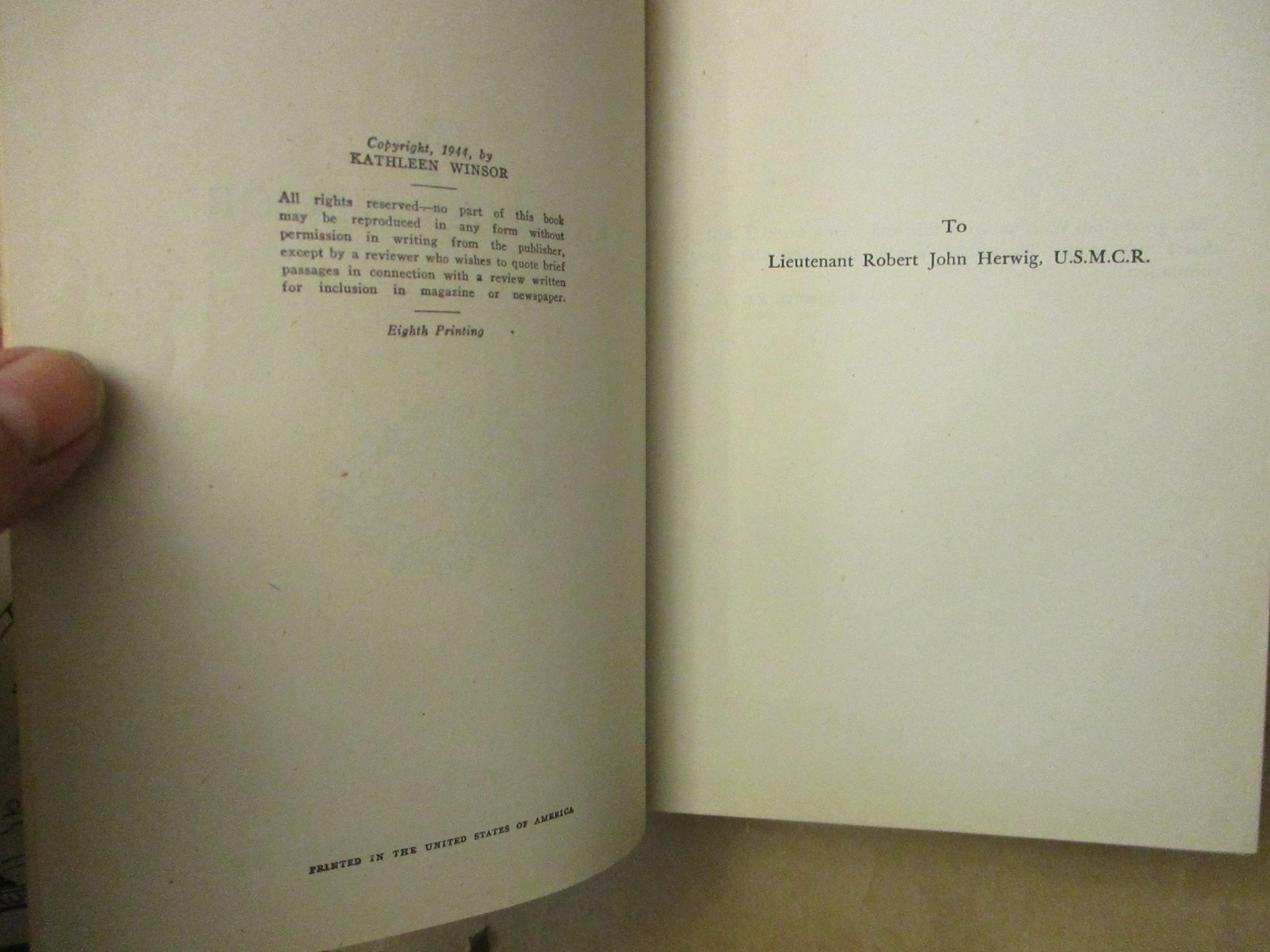


There is nothing more enticing than a book that has been banned. She found it hard to repeat the success of Forever Amber, even though she recognised that readers "like to read about the past because it has no threats for them".Kathleen Winsor published Forever Amber, the 972-page historical romance novel in October of 1944. She always intended to write a sequel to Forever Amber to be called "Amber in America" but it never appeared. Winsor wrote a number of other contemporary and historical romances, including The Lovers (1952), Robert and Arabella (1986), Calais (1980) and Star Money (1950 ). Her fourth husband, Paul A Porter, was also a lawyer. Winsor's second marriage didn't last either but she quickly met her third husband, Arnold Krakower - he was the lawyer handling her divorce from Shaw in 1948. Ironically, two years earlier he had condemned his then wife, Ava Gardner, for reading a "trashy novel" - Forever Amber. She next married the bandleader Artie Shaw. She was described as "one of the great ornaments of New York" - she lived in New York most of her life - although she also received hate mail branding her "a sexy tramp". Her success combined with her striking good looks ensured she became part of the celebrity circuit. (A relative of Winsor said that the writer, "the most beautiful woman he'd ever seen," was the natural choice to play Amber.) The novel outsold every other US novel of the 1940s and Winsor, dubbed America's most notorious novelist, made more money from this single book than any other writer of the time. The film version went ahead, with Linda Darnell as Amber and Cornell Wilde as her true love, and was a big hit on its release in 1947. (The novel did not titillate every reader: when the ban was reversed the appeal judge said the book had put him to sleep.)Įven before a film deal had been done, the Hays Office, the self- appointed morality board for the film industry, condemned the book. He added: "The references to women's bosoms and other parts of their anatomy were so numerous I did not even attempt to count them." The book was publicly burned in that state. The Attorney-General of Massachusetts, in explaining his reasons for banning the book, said that he had counted 70 references to sexual intercourse, 39 illegitimate pregnancies, seven abortions, 10 descriptions of women undressing in front of men and 49 "miscellaneous objectionable passages".


 0 kommentar(er)
0 kommentar(er)
